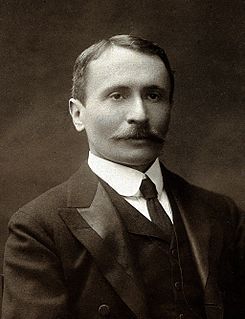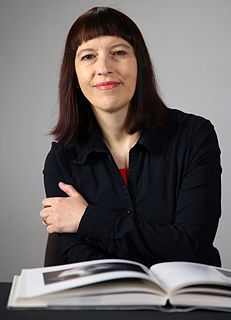A Quote by Zahi Hawass
Egypt has managed to reclaim the 13-page papyrus manuscript.
Quote Topics
Related Quotes
As though she had entered a fable, as though she were no more than words crawling along a dry page, or as though she were becoming that page itself, that surface on which her story would be written and across which there blew a hot and merciless wind, turning her body to papyrus, her skin to parchment, her soul to paper.
The writer marks the changes he wants to make, while a proofreader also goes through the galley, checking it page-by-page against the manuscript. Once all these changes are identified, a second-pass proof is made, and this, too, gets sent to the author and the proofreader, and the process begins anew.
All is made clear,regarding Abraham and Sarah's traversal into Egypt, when we realize what biblicists meant by the term "Egypt." As Ralph Ellis so brilliantly points out, the name Egypt was employed by the composers of the Old Testament to denote Thebes in Lower Egypt. This was the city and region controlled by the adversaries of the Hyksos. It was considered a separate region, with different rulers, gods, customs, and politics. So, it was not the country of Egypt that Abraham visited, but Thebes within Egypt.
I have always been jealous of artists. The smell of the studio, the names of the various tools, the look of a half-finished canvas all shout of creation. What do writers have in comparison? Only the flat paper, the clacketing of the typewriter or the scrape of a pen across a yellow page. And then, when the finished piece is presented, there is a small wonder on one hand, a manuscript smudged with erasures or crossed out lines on the other. The impact of the painting is immediate, the manuscript must unfold slowly through time.
In the night ride across the Wular lake a small storm made me worry for the safety of my manuscript (Rajatarangini). It seemed as if the goddess of wisdom - Sharada, represented by waters of Kashmir, was unwilling to let me abduct the manuscript. This is what happened 1200 years ago to the Chinese pilgrim Hiuen-Tsang, who had to leave his Sanskrit manuscript in the angry Indus River.
Carter pulled out several lengths of brown twine, a small ebony cat statue, and a thick roll of paper. No, not paper. Papyrus. I remember Dad explaining how the Egyptians made it from a river plant because they never invented paper. The stuff was so thick and rough, it made me wonder if the poor Egyptians had had to use toilet papyrus. If so, no wonder they walked sideways.
There's a certain pressure you put on yourself to use the comics page to full advantage that can focus your mind to a pinpoint, and when the juices are flowing, that's incredibly exciting. When you've managed to fit a complex set of actions or a complicated emotional passage into a single page there's the sense of satisfaction that I suspect a sculptor gets from chipping away at a piece of stone and ending up with a fully-realized work of art.





































